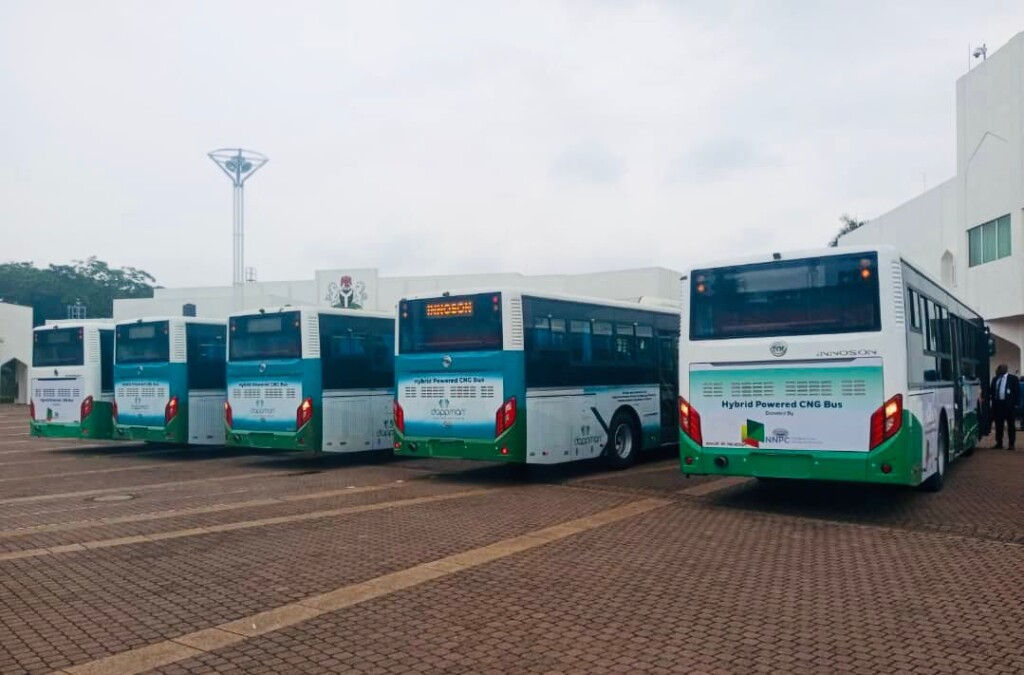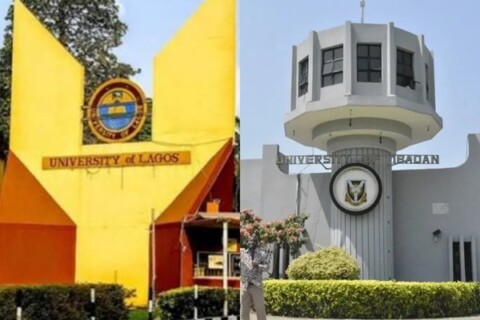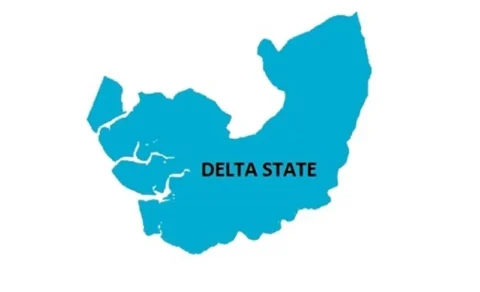The Federal Government has officially launched the deployment of Compressed Natural Gas (CNG)-powered buses to Nigerian universities, beginning with the University of Abuja, as part of a wider plan to reduce transportation costs and promote environmentally friendly energy solutions on campuses.
The initiative, tagged CNG-Sprout, is the first phase of the Project CNG Special Palliative Relief for Universities Transportation, which will be extended to 20 federal universities across the country.
Speaking at the commissioning ceremony on Thursday, the Minister of State for Petroleum Resources (Gas), Ekperikpe Ekpo, described the initiative as a timely intervention aligned with Nigeria’s ongoing energy transition and economic reforms.
“I hereby commission the Project CNG-Sprout buses for deployment to university campuses across the country. May they serve as vehicles not just of transport but of hope, relief, and national progress,” Ekpo said.
He noted that the project is designed to provide immediate relief for students impacted by high transportation costs, while also supporting President Bola Tinubu’s broader goals of making energy more affordable, reducing carbon emissions, and reforming the transport sector.
“As we navigate energy reforms and shift towards cleaner fuels, cushioning the impact on vulnerable populations, particularly students, remains a key national priority,” Ekpo added.
The project is being implemented by the Midstream and Downstream Gas Infrastructure Fund (MDGIF), in collaboration with FEMADEC Energy Limited, which was commended for completing the first deployment phase on schedule.
In 2024, the federal government allocated ₦122 billion to six Nigerian companies through the MDGIF to improve the country’s gas infrastructure and increase gas usage in various sectors.
Ekpo emphasized that the deployment of CNG buses marks only the beginning of a broader transformation in Nigeria’s public transport system. He revealed that additional incentives for CNG vehicle conversion, expansion of refueling stations, and support for local assembly and innovation in the CNG ecosystem would be rolled out in the coming months.
“This is not just a transport solution. It is a jobs and industrialisation pathway,” the minister said.
Oluwole Adama, Managing Director of MDGIF, praised President Tinubu for his leadership, particularly through initiatives such as Executive Order 40 and the Presidential Initiative on Compressed Natural Gas.
He acknowledged the challenges in rolling out CNG refueling infrastructure across 20 universities and applauded FEMADEC for delivering under pressure.
“As we unveil the first four facilities here in Abuja, we must congratulate FEMADEC for delivering under pressure and against tight timelines,” Adama said.
He reaffirmed MDGIF’s commitment to strategic investments in gas infrastructure that will boost domestic consumption and drive economic growth.
Also speaking at the event, Michael Oluwagbemi, Chief Executive Officer of the Presidential Initiative on CNG (PiCNG), said the project fulfilled President Tinubu’s post-inauguration promise to introduce CNG-powered transportation, particularly in higher institutions.
“Through this partnership, we are delivering more than just buses and tricycles. We are delivering hope, innovation, and a future-forward solution to the mobility and energy challenges facing our academic communities,” Oluwagbemi stated.
He added that the government is not only offering cleaner transportation alternatives but also laying the foundation for an innovative ecosystem that can drive economic opportunities.
The Minister of Education, Maruf Olatunji Alausa, who coordinated the involvement of vice chancellors from the 20 selected universities, was commended for aligning the project with institutional performance indicators.
“This is the first of 20 of our federal institutions that will get this. But let me tell you, look into the future — 24 months from now, literally all our tertiary institutions, universities and colleges of education alike, will have each of these amenities on campus,” Alausa said.
The deployment of the CNG-Sprout buses is expected to lower transport expenses for students and help reduce Nigeria’s carbon emissions, aligning with global environmental goals.





